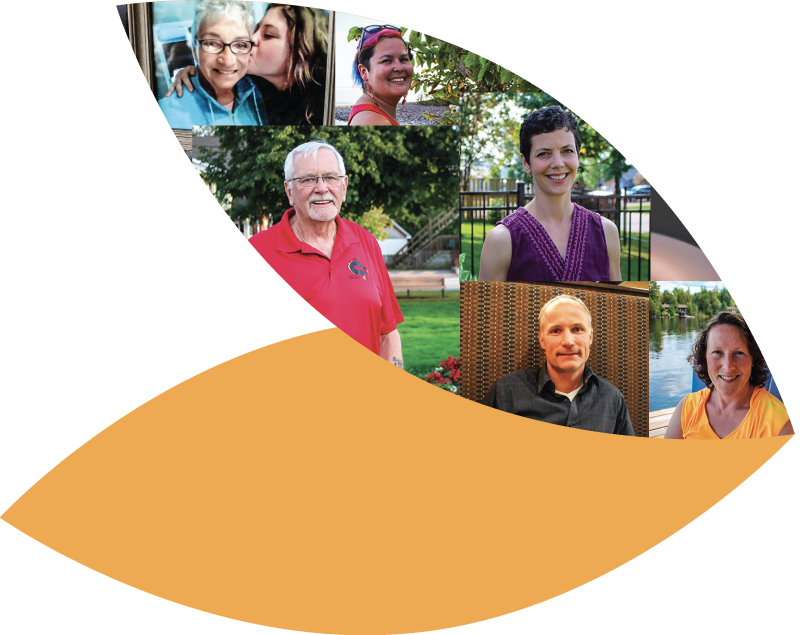Cancer Community Nippising
Indigenous Resources
Summary
Indigenous people facing a cancer diagnosis may experience unique challenges, including access to culturally appropriate care, transportation barriers, and the need for holistic healing approaches that align with traditional values. Ensuring that Indigenous patients have access to dedicated cancer support services—such as Indigenous patient navigators, healing lodges, and community-based resources—can make a significant difference in their journey. These services provide not only medical guidance but also emotional, spiritual, and cultural support, helping individuals and families feel heard, respected, and empowered throughout treatment and recovery. Bridging gaps in healthcare with Indigenous-led initiatives and culturally safe care is essential to improving outcomes and honoring the diverse needs of Indigenous communities.
Acknowledgement:
Thank you to Ariel Nakogee for her time spent researching and authoring this section. We would also like to thank and acknowledge the Indigenous cancer survivors from the North Bay Indigenous Hub who participated in focus groups to help direct the creation of this section.
Indigenous Health & Support Organizations
The North Bay Indigenous Hub (NBIH)
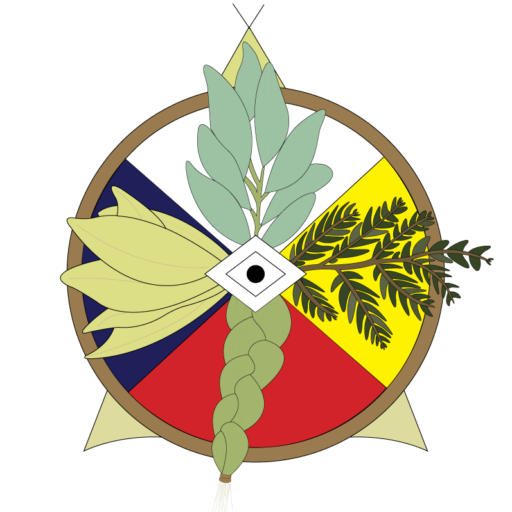
The North Bay Indigenous Hub (NBIH) offers a comprehensive range of culturally integrated services to support the Indigenous community's health and well-being. Their offerings include:
- Primary Health Care: NBIH provides both primary and holistic medical services, integrating Indigenous culture and traditions to enhance health outcomes.
- Traditional Healing Services: A variety of programs are available, including but not limited to: Traditional Medicines, the Hair cutting ceremony, Drumming, Sweats, Elders, Traditional regalia/garments, Bundles, Celebration of life, Grief circles, Traditional Preparation for end of life.
- Mental Wellness & Social Services: The hub offers individual and family counseling, stress management, grief and trauma counseling, transitional support, system navigation, and resource linkages to assist clients in managing everyday challenges.
- Child Care & EarlyON Centre: Early childhood development and learning services are available, reflecting Indigenous approaches by incorporating language, traditional teachings, land-based activities, storytelling, and elder visits to support children's holistic growth.
These services are designed to be delivered in a culturally safe manner, ensuring they meet the unique needs of the local urban Indigenous population and partner First Nations, including Nipissing, Temagami, and Dokis.
To become a patient of the North Bay Indigenous Hub, fill out the Intake Form.
The North Bay Indigenous Friendship Centre (NBIFC)
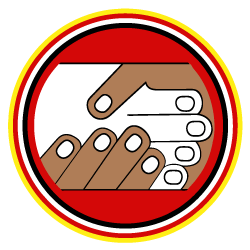
The North Bay Indigenous Friendship Centre (NBIFC) offers a comprehensive array of programs and services to support the urban Indigenous community's health, wellness, and cultural needs. Key services include:
- Health Services: The Aboriginal Health Outreach Program assists individuals in navigating the healthcare system, providing advocacy, assistance with forms, housing support, status card applications, and promoting healthy lifestyles.
- Mental Health and Addictions Support: The Addictions and Mental Health Systems Navigator program combines traditional and mainstream services to improve health outcomes and reduce family violence.
- Children and Youth Programs: NBIFC offers various initiatives, such as the Children's Mental Health program, which provides individual and group counseling, crisis intervention, and support groups to promote mental wellness among Indigenous children and youth.
- Family Support: The Aboriginal Family Support Program delivers services like referrals, advocacy, home visits, transportation, emergency material assistance (e.g., formula, diapers), positive parenting classes, and community kitchen activities to foster healthy family life.
- Cultural Programs: NBIFC emphasizes cultural reclamation through initiatives like the Youth Life Promotion program, which helps youth aged 13-24 make healthy life choices and supports cultural engagement.
These services are designed to promote Mno Bimaadziwin, meaning "the good life," by addressing the diverse needs of the Indigenous community in North Bay. You do not have to be a member to access the programs offered at NBIFC.
Life Long Care Program at NBIFC

The Life Long Care Program assists Indigenous adults, seniors, disabled people and chronically ill children with:
Long-term care
Medical Transportation:
- Transportation is provided to and from medical appointments in and out of town.
Advocacy:
- Ensuring clients receive support and services they need.
- Language translation services in Cree and Anishinaabemowin for fluent speakers.
- Assistance in accessing services, funding, or medical supplies.
Referrals :
- For services not provided within the NBIFC
Friendly Visiting
Congregate Dining
Security Checks
Indigenous Support
Aboriginal Health Outreach Program at NBIFC

The Aboriginal Health Outreach Program assists Indigenous people to understand the health care system and to obtain the care they require. Services Include:
- Advocacy
- Helping you find family physicians, if needed
- Medical transportation for appointments
- Navigating the healthcare system
- Assistance with forms
- Assistance with Housing
- Status card applications
- Social assistance
- Health awareness
- Disease prevention
- Promotion of healthy lifestyles
- Violence free families
- And access to cultural healing
The Indigenous Cancer Care Team at NECC
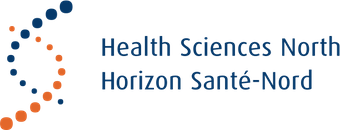
The Indigenous Cancer Care Team at the Northeast Cancer Centre (NECC) provides comprehensive support to First Nations, Métis, and Inuit patients and their families throughout their cancer journey. The team comprises Indigenous Patient Navigators, an Indigenous Engagement Liaison, and Regional Indigenous Cancer Leads/Physicians.
Indigenous Patient Navigators offer additional assistance to Indigenous patients and their families at every stage of the cancer journey. They also educate healthcare providers and medical learners on issues specific to First Nations, Métis, and Inuit communities.
The Indigenous Engagement Liaison supports the Regional Indigenous Cancer Leads in implementing their mandates and helps design and deliver culturally relevant cancer programming, coordination, outreach, and education to Northeastern Indigenous communities.
Regional Indigenous Cancer Leads/Physicians work to build relationships within communities and with key stakeholders to address cancer prevention, screening, survivorship, and palliative care for Indigenous patients and their families. They advocate for issues related to the Indigenous Cancer Strategy and the specific cancer needs of First Nations, Métis, and Inuit populations. Additionally, they support primary care providers in improving screening practices for Indigenous clients.
This dedicated team ensures that Indigenous patients receive culturally safe and appropriate care throughout their treatment journey.
Minowacihewin - Regional Services for Indigenous Peoples at North Bay Regional Health Centre

The Mînowacihewin – Regional Service for Indigenous People at the North Bay Regional Health Centre supports Indigenous peoples with culturally relevant care that integrates holistic health principles. They aim to recognize and respect Indigenous ancestry and culture, fostering physical, emotional, mental, and spiritual well-being through education and community capacity building. Services include:
Internal referrals:
- Internal referrals to Minowacihewin can be made by any healthcare team within the hospital. Clients can also self-refer to Minowacihewin.
- The Mino team can also support and advocate for referrals for clients in and out of the hospital.
Clinical consultations
Discharge planning
Community resource coordination
Cultural engagement for patients and their families
- Spaces for smudging
- Traditional medicines (Sage, Tobacco, Cedar, Sweetgrass)
- Sharing circles for families
- End-of-life ceremony
- Cultural grounds from Spring to Fall
- Language translation services in Cree and Anishinaabemowin
On-going support after discharge
- Traditional medicines (Sage, Tobacco, Cedar, Sweetgrass)
- Visits from Case workers
- Phone/zoom calls
- Advocate for in community services
Community Health Program at Lawrence Commanda Health Centre
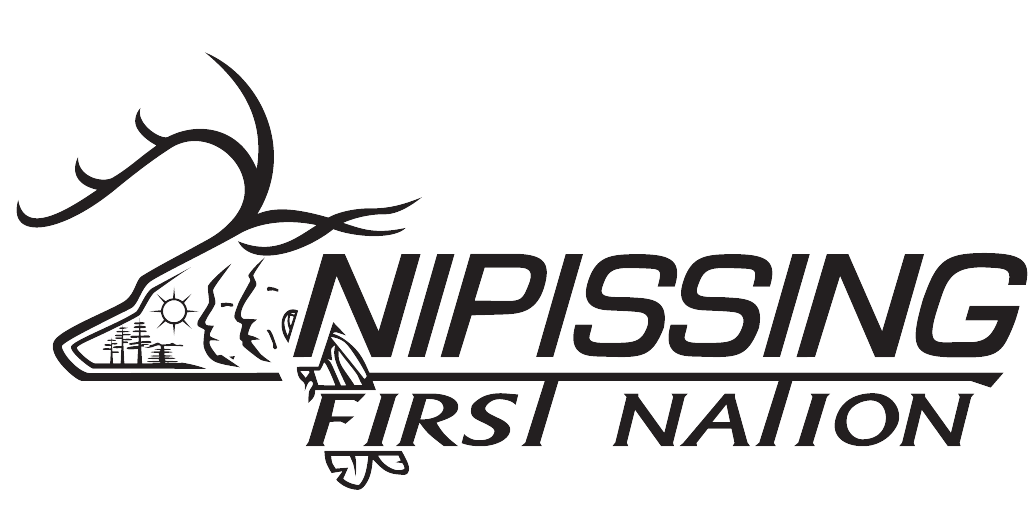 Visit the Community Health Program
Visit the Community Health ProgramThe Community Health Program offers individuals living with chronic disease support including working with the client’s primary care provider to monitor or bridge the gap between visits. Education sessions to increase awareness and management are offered in NFN including topics such as blood pressure, heart disease, diabetes and cancer screening.
Medical Health Fund through Nipissing First Nation
 Visit the Medical Health Fund
Visit the Medical Health FundThe Medical Health Fund was established to provide financial assistance for health-related expenses not covered by other health benefit plans or funding sources. Approvals are subject to the availability of funds per fiscal year (April to March).
Metis Nation of Ontario - North Bay Office
 View on Metis Nation of Ontario
View on Metis Nation of Ontario**Please note that at this time, you do not need Metis citizenship to access the Community Support Services Program. You can be self-identifying.
Community Support Services Program
The Community Support Services Program’s primary focus is to help people who are elderly and/or chronically ill and who may be experiencing isolation or are having difficulty managing their disease or dealing with a terminal illness.
Services Include, but are not limited to:
Friendly Visits
Providing clients with regular visits and phone calls, based on client wishes, to help to provide support for isolated or ill clientele while ensuring their health and safety.
Medical Transportation Services
This service is available to help transport clients to and from medical appointments. For clients who meet the criteria transportation will be arranged through either a volunteer driver or a CSS coordinator.
Caregiver Support Services
Provides advocacy services and information to assist caregivers in their role. CSS can provide referrals for respite care and friendly visits to help reduce isolation for both clients and caregivers.
Traditional Medicine & Healing Resources
Traditional Healing Services at NBIH
 View on NBIH
View on NBIHThe Traditional Healing Services (THS) program believes in sustaining person/client beliefs and values by providing Indigenous-based ceremony, guidance, counsel, and cultural education services to facilitate holistic healing of self, family, community, and nation. Services include, but are not limited to:
- Traditional Medicines
- Hair cutting ceremony
- Drumming
- Sweats
- Elders
- Traditional regalia/garments
- Bundles
- Celebration of life
- Grief circles
- Preparation for end of life
- Advocacy to support cultural preparations for end of life (medicines. moccasins, traditional regalia, ceremony, etc)
Aboriginal Healing and Wellness Program at NBIFC

The Healing and Wellness Program addresses healing and wellness through:
- The promotion of healthy lifestyles
- Culturally based programming
- Access to cultural healers
- Elders
- Ceremonies
Green Medicine
Visit Green MedicineGreen Medicine is an Indigenous owned health food store which sells salves, natural/organic products, healthy foods, and homeopathic medicine.
NeepSee
Visit NeepseeNeepsee provides a wide range of herbs, teas, and traditional medicines. NeepSee follows strict protocol and procedures while harvesting herbs to create top quality natural products. Most products can be shipped within Canada.
Emotional and Mental Health Supports
Mental Wellness and Social Services at NBIH
 Visit The Mental Wellness Team
Visit The Mental Wellness TeamThe Mental Wellness Team provides holistic and culturally relevant support to individuals and families, recognizing that mental health and wellness are personal journeys. Services include:
- Assessment
- Advocacy
- Case management
- Addiction recovery
The Social Work Team offers a diverse approach to service delivery, focusing on the role of culture in health and wellness. They assist individuals and families with a range of needs including:
- Counseling
- Stress management
- Grief support
- Resource navigation
Psychotherapist and Counselling that will direct bill to NIHB
Support Groups and Community Connection
See
Support Groups for general information.
Children's Resources
Additional resources available in
Child and Youth Cancer
Jordan’s Principle
 Visit Jordan's Principle
Visit Jordan's PrincipleJordan's Principle makes sure all First Nations children living in Canada can access the products, services and supports they need, when they need them. Funding can help with a wide range of health, social and educational needs, including the unique needs that First Nations Two-Spirit and LGBTQQIA children and youth and those with disabilities may have.
For support with a Jordan’s Principle application, you can contact your community’s JP Navigator (if available in your community), or you can call the Jordan’s Principle Call Centre.
Indigenous Health Navigators (IHN) and Patient Experience Specialist (PES) at SickKids
Connect with an IHNThe IHN & PES draws on Indigenous ways of knowing and healing to support Indigenous children and families and to help advance SickKids' Indigenous Health Strategy. In this role, the IHN & PES works closely with staff to provide direct support to Indigenous patients and families.
They support Indigenous patients and families by:
- Having traditional Indigenous healing ceremonies with you at the hospital
- Connecting you to Elders and healers for spiritual and emotional support
- Giving you information about health services and local community resources (such as sweat lodges and sacred spaces)
- Explaining how to report concerns about care and services
- Helping to report and address your concerns about care and services
Alongside this work, the IHN & PES provides guidance to SickKids staff on providing culturally safe care and support.
Educational Resources
Conversations about Cancer for Indigenous Peoples:
 Visit Conversations about Cancer for Indigenous People
Visit Conversations about Cancer for Indigenous PeopleDr. Erin Peltier, a First Nations family physician who has a special interest in cancer, speaks about cancer and the importance of cancer screening in a short, animated video series for Indigenous peoples of all ages.
Video topics include:
- What is Cancer?
- Breast Screening
- Colorectal Screening
- Lung Screening
- Cervical Screening
Educational videos are available in English, French, Cree and Ojibwe.
Cancer Care Ontario
FNMI & Urban Indigenous Cancer Screening Resources
These resources for Indigenous people and communities help provide education and awareness about Ontario’s breast, cervical and colorectal screening programs. This section of the website explores:
- Cancer and Screening Toolkit
- Steps in Cancer Screening Guide
- Cancer Screening Posters
- Cancer Screening Postcards
- Cancer Screening Brochures
Palliative Care Toolkit for Indigenous Communities
This toolkit includes resources and reference material for First Nations, Métis and Inuit families and communities. It can be used to help support people with cancer who have palliative care needs. These education materials can be used by anyone in the community.
Recommended Resources for FNMI & Urban Indigenous Peoples:
This page lists cancer resources to support First Nations, Inuit, Métis and urban Indigenous communities and organizations in Ontario. Find tools, reports and publications, service information, and other resources related to First Nations, Inuit, Métis and urban Indigenous cancer care and control.
Canadian Virtual Hospice
Tips for Talking with Your Health Care Providers
This article provides practical advice on how to effectively communicate with your healthcare providers. It offers tips for preparing for appointments, asking the right questions, and ensuring clear and open dialogue. The goal is to help patients and caregivers navigate conversations with healthcare professionals to improve understanding and outcomes in their care.
This diary can be used by patients to record their symptoms, when they occur, treatments used and did they work. It is a helpful communication tool between the patient and health care providers to improve symptom management. Patients are encouraged to take this record to health care appointments to help explain the symptoms they are experiencing, etc.
My Choices for Safe and Inclusive Health Care
My Choices for Safe and Inclusive Healthcare is a place to record information related to your health and preferences for your care. It can help you to have conversations with healthcare providers; to plan for your future care; and to share information with others, including your emergency contacts.
Livingmyculture.ca - First Nation, Inuit, Métis
At LivingMyCulture.ca, people from various cultures share their stories and wisdom about living with serious illness, end of life and grief to support others.
Two-Spirit and LGBTQ+: Proud, Prepared, and Protected
Proud, Prepared, and Protected is a collection of online resources to assist people who identify as 2SLGBTQ+ to access and receive inclusive, respectful care. These resources were developed by people who identify as Two-Spirit and LGBTQ+.
Journal and Planner for Métis Cancer Patients
This journal offers a dedicated space for personal reflection and tracking throughout the cancer journey. It provides prompts and sections for recording daily experiences, treatment progress, and emotional responses. Designed to support self-expression and mindfulness, the journal helps individuals document their journey, set personal goals, and reflect on their experiences while integrating Métis cultural values and traditions. It serves as both a practical tool and a source of comfort and empowerment during treatment.
Pauktuutit Inuit Women of Canada
For over 40 years, Pauktuutit Inuit Women of Canada has been a powerful voice for Inuit women, girls, and gender-diverse Inuit, working to improve their social, cultural, and economic well-being.
Journal and Planner for Métis Cancer Patients
This journal offers a dedicated space for personal reflection and tracking throughout the cancer journey. It provides prompts and sections for recording daily experiences, treatment progress, and emotional responses. Designed to support self-expression and mindfulness, the journal helps individuals document their journey, set personal goals, and reflect on their experiences while integrating Métis cultural values and traditions. It serves as both a practical tool and a source of comfort and empowerment during treatment.
Caregiver Toolkits
Supporting a Circle of Care Toolkit from the Native Women’s Association of Canada
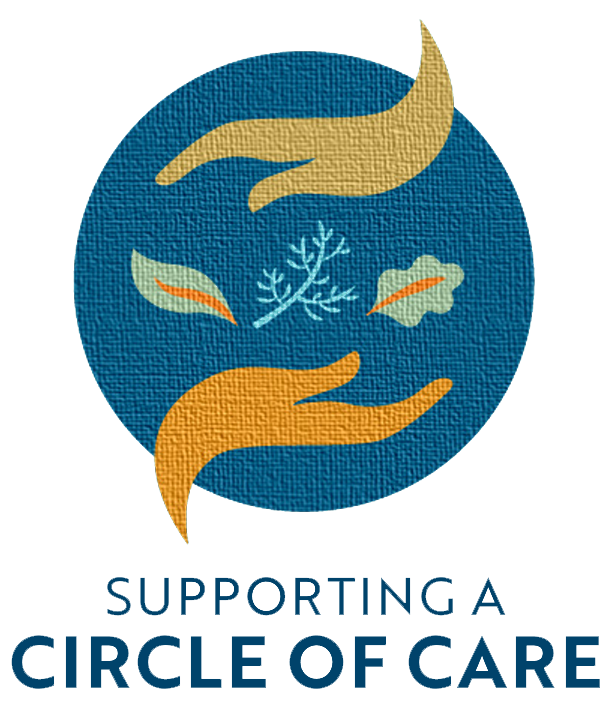 View Circle of Care Toolkit
View Circle of Care ToolkitThe Circle of Care Toolkit provides tips and strategies on self-care, understanding a loved one's needs, and developing a support network. There are also resources to help caregivers plan ahead, record important information, and document aspects of their journey with their loved ones.
I am a Caregiver Toolkit – Indigenous adaptation from the Ontario Caregiver Organization
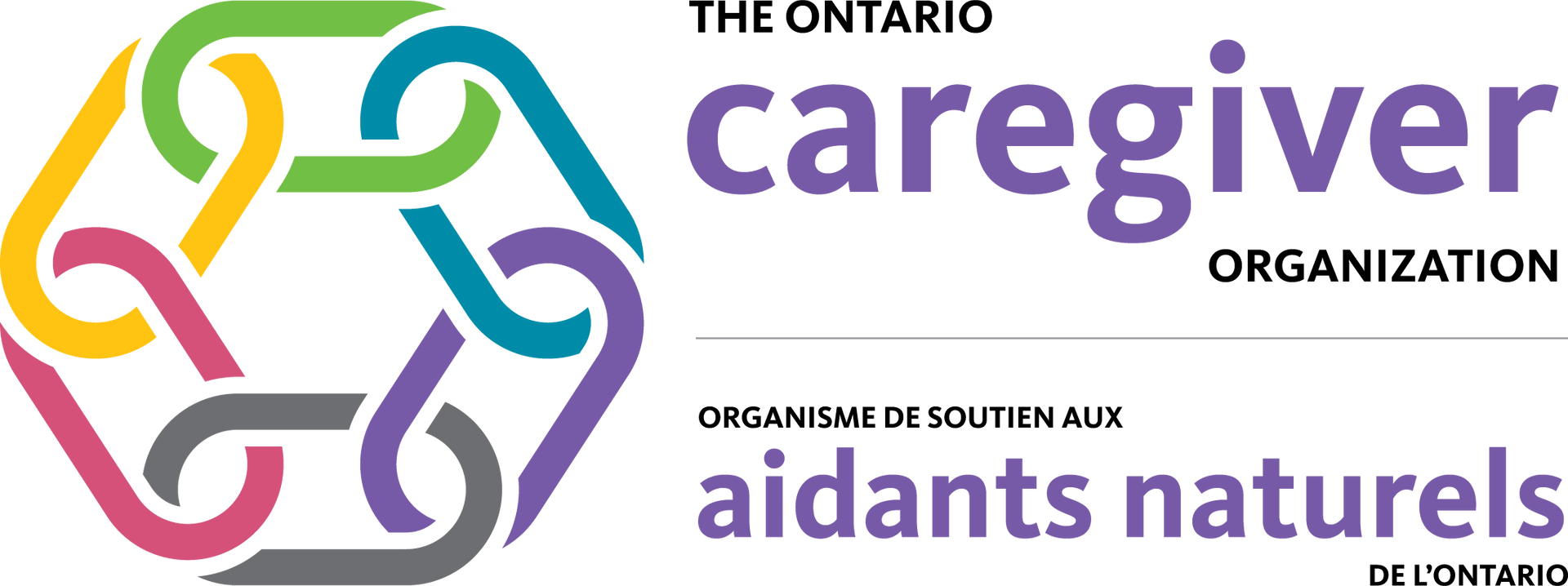 View this Toolkit
View this ToolkitThis toolkit offers essential resources and guidance for new caregivers, including information on managing caregiving responsibilities, accessing support services, and navigating the caregiving journey. The kit is designed to help caregivers start their role with practical tools and knowledge to effectively support their loved ones.
Cultural Safety Courses and Resources for Healthcare Providers
Are you a healthcare provider or primary care organization looking to build your knowledge and skills in providing culturally safe and sensitive care for Indigenous peoples? Here are some resources you can access to educate yourself and your team:
Canadore College
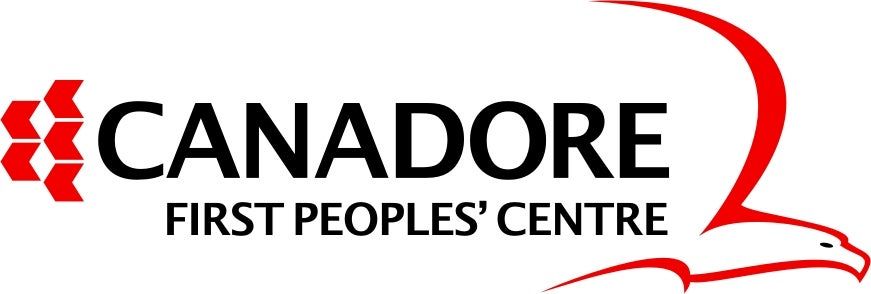 Learn about Biigiiweyan “Coming Home”
Learn about Biigiiweyan “Coming Home”Biigiiweyan Indigenous Interprofessional Cultural Safety Training Program:
Biigiiweyan “Coming Home” is an Indigenous Inter professional Cultural Safety Training Program. The program targets the training of health care professionals and students.
The training session is a 14 hour training session. It can be broken down into shorter time frames, depending on the needs of your organization. Session breakdowns include 2 day sessions or 7 week training sessions in the evenings. Training is led by a facilitator, knowledge keeper, and faculty from Canadore College.
The sessions are as followed:
- Centre/Self - Session #1 - Introductions and Pre Discussion Circle
- East Direction - Session #2= Colonization Past and Present
- Introduction of Simulation - Session #3 - Indigenous Worldviews and Healing Wellness Practices
- South Direction - Session #4 - Respect, Relationships, Reconciliation, and Accessing Health Resources and Services
- West Direction - Session #5 - Mino Bimaadiziwin “Living the Good Life”
- North Direction - Session #6 - Cultural Safety, Advocacy and Health Transformation.
Ontario Health: Indigenous Relationship and Cultural Awareness Courses
 View on Ontario Health
View on Ontario HealthIndigenous Relationship and Cultural Awareness Courses
Courses found on the Ontario Health E-Learning Website:
- First Nations, Inuit and Métis Culture, Colonization and the Determinants of Health
- Indigenous History and Political Governance
- Cultural Competence in Healthcare
- Indigenous Health Services and Governments
- Indigenous Knowledge and Traditional Health
- Indigenous Community Health Services
- The Health Landscape of Indigenous People
- Indigenous Cancer Care and Challenges
- Truth and Reconciliation Commission of Canada (TRC) and the United Nations Declaration on the Rights of Indigenous Peoples (UNDRIP)
- Health Literacy
- Chronic Disease Prevention for Indigenous People
- Pediatric Oncology
- Environmental Health
Indigenous Primary Health Care Council
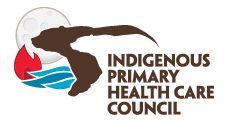 View IPHCC Customized Training
View IPHCC Customized TrainingThe IPHCC offers customized training that aims to educate individuals on the principles of Indigenous Cultural Safety and help them acknowledge their role in creating culturally safe spaces in healthcare.
Canadian Virtual Hospice: Indigenous Palliative Care
Everyone working in healthcare has a responsibility to contribute to respectful care that honors and includes cultural traditions and beliefs. In these modules, you will hear from Indigenous Peoples about their values, beliefs, and views about care, explore barriers to culturally safe care, and learn how to address these barriers.
To learn more: https://www.virtualhospice.ca/learninghub
There are 5 online modules:
- Understanding Indigenous Culture in Palliative Care,
- Indigenous Peoples’ journey through end of life care,
- Creating a safer space and wise practice for end-of-life care
- Grief experienced by Indigenous Peoples part 1 and
- Grief experienced by Indigenous Peoples part 2.


